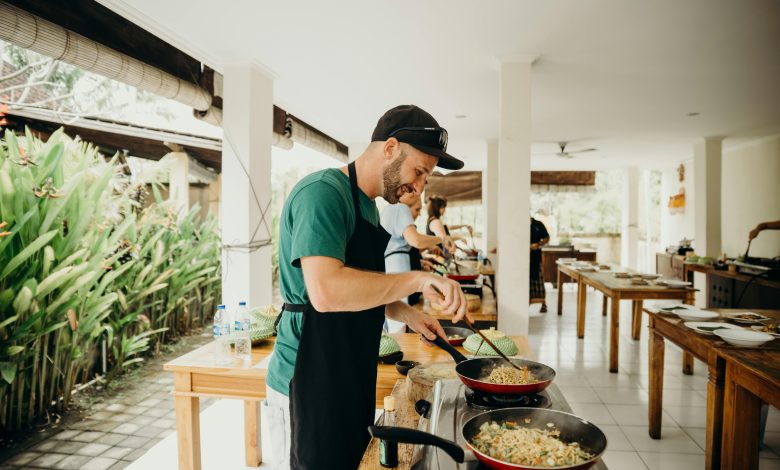Hiring a Foreign Chef in Indonesia?

Hiring a Foreign Chef in Indonesia? Here’s What You Need to Know
Bringing a foreign chef to Indonesia can elevate your culinary business with international flair and fresh expertise. But hiring a non-Indonesian for a kitchen role isn’t as simple as posting a job ad. It involves navigating immigration laws, labor restrictions, and compliance requirements. Here’s a practical guide to get it right.
Foreign Chefs Must Be Specialists
Indonesian labor law prioritizes local hires. That means foreign chefs can’t be brought in for basic cooking roles like line cooks or kitchen helpers. Instead, they must hold specialized, senior-level positions such as Executive Chef, Sous Chef (with a niche specialty), or Culinary Consultant. These roles are considered acceptable because they bring in skills or cuisine types not commonly found in the local labor market.
Start With the RPTKA
The first official step is applying for an RPTKA, or Expatriate Placement Plan. This document justifies why your business needs a foreign worker and outlines their role, responsibilities, and the expected duration of employment. It’s issued by the Ministry of Manpower and is a prerequisite before you can process any work permit.
Work Permit and KITAS
Once your RPTKA is approved, you can apply for an IMTA (work permit) and then a KITAS (limited stay permit) for the foreign chef. These are essential documents that legally authorize the chef to live and work in Indonesia. Typically, they’re valid for 6 to 12 months and can be extended.
Professional Requirements for the Chef
The foreign chef must meet specific criteria. This includes having at least five years of relevant experience, formal culinary education or certification, and a clear employment history. They must also provide a valid passport, CV, professional references, and passport photos as part of the visa process.
You Must Train Local Staff
Hiring a foreign worker comes with a legal obligation to upskill Indonesian employees. As an employer, you’re expected to provide mentorship or training programs that allow knowledge transfer from the foreign chef to local kitchen staff. This requirement is not optional—it’s a core part of Indonesia’s manpower policy.
Costs and Timeline
Processing a work permit and KITAS involves costs that can range from USD $1,000 to $2,000 or more, depending on legal fees and duration. It typically takes four to eight weeks to process all documents, assuming there are no hiccups. Always plan ahead and avoid last-minute hires.
Common Mistakes to Avoid
Never hire a foreign chef without the proper permits. It can lead to deportation, fines, or even blacklisting of your business. Also, ensure the job title matches the permitted categories. Mislabeling a position can result in permit rejection.
Conclusion
Hiring a foreign chef in Indonesia can be a strategic move for businesses aiming to offer high-end or international cuisine. But it’s not a casual hire—it’s a regulated, paperwork-heavy process that must be done by the book. With the right preparation and a solid understanding of the legal steps, you can bring in global culinary talent and stay compliant.



